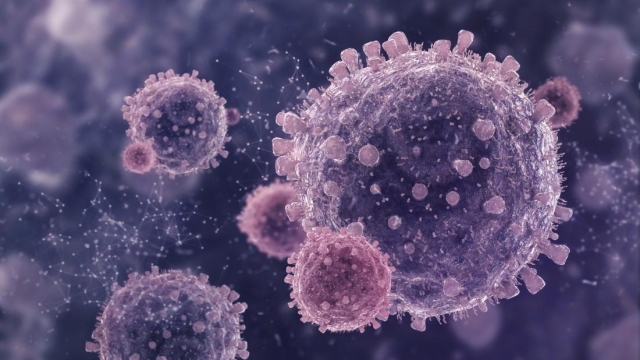
In a world inundated with quick fixes and fad diets, the journey towards sustainable weight loss can often feel overwhelming. However, achieving lasting change is not merely about shedding pounds but sculpting a healthier, happier version of yourself. Embracing a holistic approach to health and wellness empowers individuals to make choices that enhance both physical and mental well-being.
Transforming your lifestyle requires not only commitment but also a deep understanding of what fuels your body and mind. By incorporating practical strategies and cultivating a supportive environment, you can embark on a transformative journey that fosters resilience and self-discovery. This article explores effective strategies that not only aid in weight loss but also promote an overall sense of well-being, ensuring your transformation lasts long after the initial goal is met.
Understanding Weight Loss Fundamentals
When embarking on a weight loss journey, it’s essential to understand the fundamental principles that govern how our bodies lose and gain weight. At its core, weight loss occurs when there is a calorie deficit, meaning you consume fewer calories than your body needs to maintain its current weight. This deficit prompts the body to tap into stored fat for energy, leading to weight loss over time. While this sounds straightforward, various factors such as metabolism, hormonal balance, and lifestyle play significant roles in shaping individual experiences with weight loss.
Metabolism refers to the biochemical processes that convert food into energy. Each person has a unique metabolic rate influenced by age, gender, genetics, and body composition. Understanding your metabolic rate can help tailor a weight loss plan that aligns with your body’s specific needs. Additionally, hormones play a crucial role in regulating hunger, satiety, and fat storage. Imbalances in hormones like insulin, leptin, and cortisol can impact your ability to lose weight effectively, making it vital to consider overall hormonal health when pursuing weight loss.
Moreover, lifestyle factors, including physical activity, sleep, and stress management, significantly affect weight loss efforts. Regular physical activity not only burns calories but also boosts metabolism and enhances muscle mass, which in turn helps maintain a healthy weight. Adequate sleep is crucial for hormone regulation and recovery, while effective stress management can prevent emotional eating and other behaviors that hinder weight loss progress. By addressing these fundamental aspects, individuals can create a sustainable and effective approach to weight loss that aligns with their health and wellness goals.
Nutritional Strategies for Success
Adopting a successful weight loss plan begins with understanding the importance of balanced nutrition. Focus on creating meals that include a variety of whole foods, emphasizing fruits, vegetables, lean proteins, whole grains, and healthy fats. These food groups provide essential nutrients and help regulate hunger, making it easier to maintain a calorie deficit for weight loss. Planning meals in advance can reduce the temptation of unhealthy choices and ensure you are meeting your nutritional needs.
Another vital strategy is portion control, which plays a significant role in achieving sustainable weight loss. It is easy to underestimate portion sizes, leading to inadvertent overeating. Familiarize yourself with serving sizes and use tools like measuring cups or a food scale if necessary. Incorporating mindful eating practices, such as savoring each bite and slowing down during meals, allows you to better listen to your body’s hunger cues and can prevent overeating.
Lastly, hydration is often overlooked but is crucial in the journey towards weight loss and overall wellness. Drinking enough water can help manage hunger and support metabolism. Sometimes, our bodies confuse thirst for hunger, leading to unnecessary snacking. Aim to drink plenty of water throughout the day, and consider swapping sugary drinks for healthier alternatives. By prioritizing hydration alongside a balanced diet, you’ll be better equipped to reach your weight loss goals effectively.
The Role of Physical Activity
Physical activity is a cornerstone of any successful weight loss journey. Engaging in regular exercise not only helps to burn calories but also enhances overall metabolic health. Incorporating a variety of physical activities, such as aerobic exercises, strength training, and flexibility workouts, can create a well-rounded fitness routine that keeps you engaged and motivated. Finding an activity that you enjoy makes it easier to stick with it long-term, turning fitness into a fun part of your daily life.
How To Lose 10 Lbs In A Week
In addition to aiding weight loss, physical activity plays a significant role in improving mental health and emotional well-being. Exercise releases endorphins, which are natural mood lifters that can reduce feelings of anxiety and depression. Establishing a consistent fitness regimen can enhance self-esteem and body image, helping individuals to feel more confident in their skin. This positive impact on mental wellness can reinforce commitment to weight loss goals, creating a beneficial cycle of health and motivation.
Moreover, the benefits of physical activity extend beyond just weight management. Regular exercise strengthens the heart, improves circulation, and lowers the risk of chronic diseases, such as diabetes and hypertension. It also enhances strength and endurance, making daily activities easier to perform. By adopting physical activity as a lifestyle choice, you not only support your weight loss efforts but also invest in your long-term health and wellness.
Mental and Emotional Well-being
Achieving lasting weight loss involves more than just physical changes; it also requires addressing mental and emotional health. Many individuals struggle with self-image, motivation, and emotional eating, which can sabotage their weight loss efforts. Cultivating a positive mindset is essential. This can be achieved through practices such as mindfulness, self-compassion, and therapy, which help individuals recognize and manage their thoughts and feelings related to food and body image.
Stress management plays a crucial role in emotional well-being. Incorporating stress-relief techniques, such as yoga, meditation, or deep breathing exercises, can help reduce anxiety and improve overall emotional health. By learning to handle stress effectively, individuals are less likely to turn to food for comfort. Building a strong support system, whether through friends, family, or support groups, can also provide encouragement and accountability, making the journey towards weight loss feel less isolating.
Lastly, setting realistic goals and celebrating small achievements can significantly enhance mental and emotional resilience. Acknowledging progress, no matter how minor, helps maintain motivation and fosters a sense of accomplishment. It is essential to remember that weight loss is a journey, and nurturing mental and emotional well-being along the way is key to transforming not just the body, but also the mind for sustainable change.
Sustaining Long-term Results
Achieving weight loss is just the beginning of a journey towards health and wellness. Sustaining long-term results requires a shift in mindset and daily habits. It is essential to create a lifestyle that supports your goals rather than resorting to quick fixes. Engage in regular physical activity that you enjoy, as it becomes much easier to stick with a routine that feels rewarding. Incorporate healthy eating habits gradually, focusing on whole foods rather than processed options, to foster lasting change.
Maintenance is often overlooked, but it is crucial for long-term success. Monitor your progress by keeping a food journal or using apps that track your intake and activity levels. This self-awareness helps you recognize patterns and make adjustments as needed. It’s also beneficial to set realistic goals that are achievable over time rather than aiming for drastic changes. Celebrate small victories to keep motivation high during the process.
Support systems play a vital role in sustaining weight loss. Surround yourself with friends, family, or support groups who share similar health goals. Engaging with others can provide encouragement, accountability, and a sense of community that makes the journey more enjoyable. Remember that setbacks may occur, but having a robust support network can help you bounce back and continue on your path toward health and wellness.



